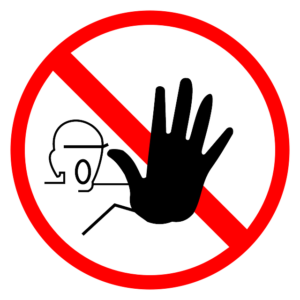Immediate protection from collection is at the top of the list for most bankruptcy filers.
They want the lawsuit to stop; the wage garnishment to stop; the debt collectors to stop.
But, if this isn’t your first bankruptcy case, do you get that protection?
What the automatic stay does
The Automatic Stay (or “Stay”) protects the bankrupt consumer from continuing collection actions by his or her creditors.
All creditors are required to cease all actions intended to collect a pre-petition debt from the Debtor. See 11 United States Code section 362.
The stay (1) halts a foreclosure sale, (2) stops and eviction, (3) stops an ongoing lawsuit, and (4) gives the Debtor some ‘breathing room’ and allows them to reorganize their financial affairs while under the protection of the bankruptcy court.
In order for a Creditor to take action against a Debtor for debts incurred prior to the bankruptcy filing, the Creditor must come to the Court and request “Relief from Stay”, or ‘permission’ from the Court to continue a legal or collection action against the Debtor.
Violation of the Stay can result in very heavy penalties for a Creditor. The bankruptcy courts are authorized to treat a violation of the Stay as an act in ‘contempt of court.’ I frequently assist Debtors in seeking damages and compensation from Creditors for violations of this law.
The stay the second time around
In most situations, the Stay comes into effect immediately upon the filing of the bankruptcy petition and lasts until a Debtor’s plan of reorganization is confirmed or the Debtor receives a discharge. 11 USC 524.
However, if a Debtor was involved in a previous bankruptcy case that was dismissed within a year prior to the current filing, the Stay might only last for 30 days after the filing of the case.
A Debtor can request that the Stay be extended or re-imposed, but that request must be made in a timely fashion; otherwise the Stay will expire and Creditors may then resume their actions against the Debtor. 11 USC 362(c)(3).
I see many cases where I am filing a second or even a third bankruptcy for a Debtor because of the dismissal of a prior bankruptcy filing. We call these ‘serial filings.’
But – what happens if the prior case was not dismissed?
Stay limited only when case is dismissed
What if the Debtor received a normal discharge in a prior bankruptcy case within the 1-year time period?
Suppose a Debtor goes through a Chapter 7 and later files for protection under Chapter 13 in an attempt to reorganize his or her remaining debts, catch up on mortgage arrears, or seek a mortgage modification.
I recently filed a Chapter 7 bankruptcy case for a client, who then came back to me several months later to file a Chapter 13 bankruptcy in an attempt to repay his mortgage arrears and save his home.
So the $700,000.00 question was – Does the automatic stay expire after 30 days?
If the stay expires, then I need to seek a court order extending the stay to keep the Debtor’s home safe. If the Stay does not expire, then no such order is needed.
If I make the wrong decision, then the Stay will expire 30 days after the filing and the Debtor’s house will no longer be protected from foreclosure.
As a well-known bankruptcy practitioner has told me, repeatedly, bankruptcy attorneys are “People of the Book.” The “Book” being the bankruptcy code.
So I started my investigation there – in the Book.
According to 11 USC 362(c):
“if a single or joint case is filed by or against a debtor … and if a single or joint case of the debtor was pending within the preceding 1-year period but was dismissed…”
The key phrase here is “but was dismissed“, meaning: If a Debtor was involved a prior case within the 1-year period prior to filing the new case and that case was dismissed, then the Stay expires after 30 days.
In my Debtor’s situation, his prior Chapter 7 was not dismissed; he received an standard discharge.
So my Debtor was safe: in his Chapter 13 case the Stay will continue past the 30-day period, and no Court order is necessary.
The bankruptcy code and rules are intricate, involved, and fraught with anxiety for both Debtors and their Attorneys.
If you are contemplating a second bankruptcy filing, be sure that you consult with an attorney who understands the details involved.
 Geoff Wiggs focuses his practice on bankruptcy and consumer law as well as general civil law. In addition to his Juris Doctor (JD), his background includes service in the United States Air Force, a bachelor’s degree in Computer Science and a Master’s in Business Administration (MBA). His office is in San Mateo.
Geoff Wiggs focuses his practice on bankruptcy and consumer law as well as general civil law. In addition to his Juris Doctor (JD), his background includes service in the United States Air Force, a bachelor’s degree in Computer Science and a Master’s in Business Administration (MBA). His office is in San Mateo.
More on dismissal vs. discharge
An earlier version of this post appeared on Wiggslaw.com
Image courtesy of Nemo and Pixabay






